Current Trainees
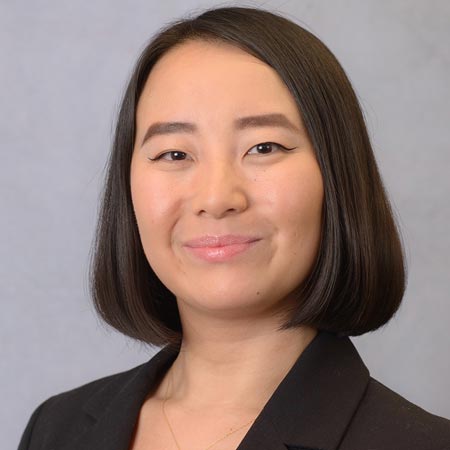
Lily Bessette
I received my BS from Boston College in 2018 as a double major in Mathematics and Biology. My first exposure to epidemiology was with the Division of Pharmacoepidemiology at Brigham and Women’s Hospital where I worked for four years in comparative effectiveness research and prediction modeling. During that time, I also expanded my skillset and completed my Master’s in Computer Science at Northeastern University in 2021. In 2022, I joined Pitt’s MD/PhD program with interests in cardiovascular disease and aging epidemiology. As a CVD T32 pre-doctoral trainee, my dissertation research focuses on healthcare resource utilization and medication adherence following heart failure hospitalization. I hope to leverage observational data and innovative causal inference methodology to advance cardiovascular care for those underrepresented in clinical trials.
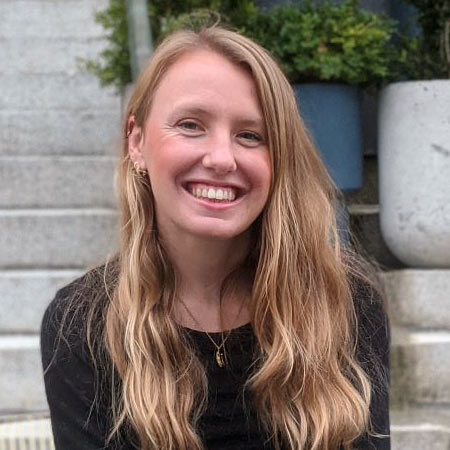
Lauren Carlson (she/her)
I earned Bachelor of Science degrees in neuroscience and psychology at the University of Pittsburgh. After graduation, I accepted an offer to conduct clinical research at the National Institute of Environmental Health Sciences (NIEHS). At the NIEHS, I began to develop an in-depth understanding of reproductive health and neuroendocrinology. Eager to continue my growth in this area, I subsequently completed the Master of Science in Epidemiology program at Georgetown University. My thesis work at Georgetown examined predictors of bone density- specifically factors involving estrogen (e.g., number of childbirths, age at menarche, or amount of dietary soy). As a T32 funding pre-doctoral trainee, my goal is to pursue research in which I investigate how exogenous and endogenous exposures of hormones can influence cardiovascular health with aging and how that in turn relates to functional independence.
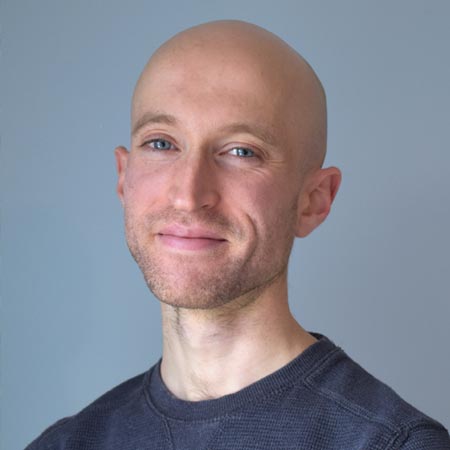
Josh Garfein
I received a BS in biology from Brown University in 2018 and an MPH in epidemiology from the University of Michigan in 2020. I joined Pitt’s MD/PhD program in 2021 with broad interests in cardiovascular disease prevention. My dissertation research is focused on social factors in hypertension management, ranging from evaluating health disparities to studying novel interventions for improving access to blood pressure monitoring. Ultimately, I hope to combine clinical medicine with epidemiology to improve cardiovascular health for both individual patients and populations.
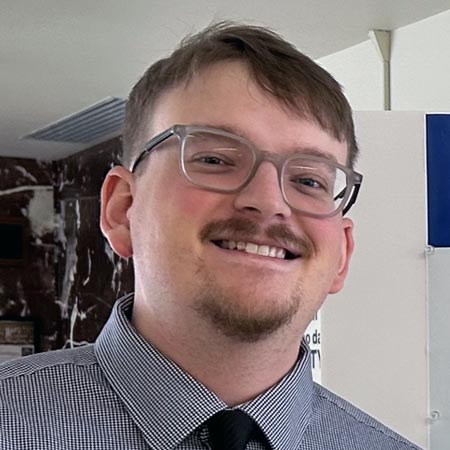
Ian Jacobs (he/him)
I received a BS in Biochemistry with a minor in Religious Studies from Beloit College in 2022 and an MS in Biostatistics from The University of Pittsburgh in 2024. My thesis work as part of my master’s program involved applied use of machine learning models performed on a group of census-based demographic and religious participation variables to analyze how including faith-related metrics can improve the prediction of vaccine hesitancy in a multivariate, socially grounded model. As a T32 trainee, I hope to utilize my background in biostatistics to research the current and standardized methods of assessing cardiovascular health and aging, including pulse wave velocity and carotid arterial wall thickness.
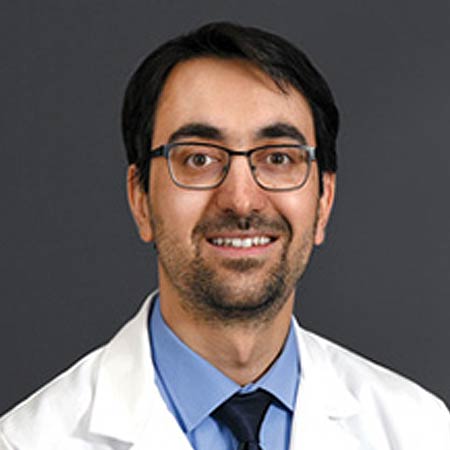
Murat Sari
After completing my medical school training in Turkey, I sought further education in the United States. I dedicated three years to studying acute and preventive treatments for stroke patients at the Ohio State University. Following that, in 2017, I commenced my residency training at Allegheny General Hospital and subsequently pursued a stroke fellowship at UPMC in 2021. During my time as an NIH StrokeNet fellow 2022-23, which coincided with my first year as an attending physician, I delved into researching the impact of health disparities on stroke outcomes. Additionally, I engaged in clinical research certification courses. Looking ahead, I intend to continue my investigation into health disparities among stroke patients, with a particular focus on vulnerable groups, as part of this program. My ultimate goal is to obtain a Master of Science degree in Epidemiology to advance my knowledge in this area.
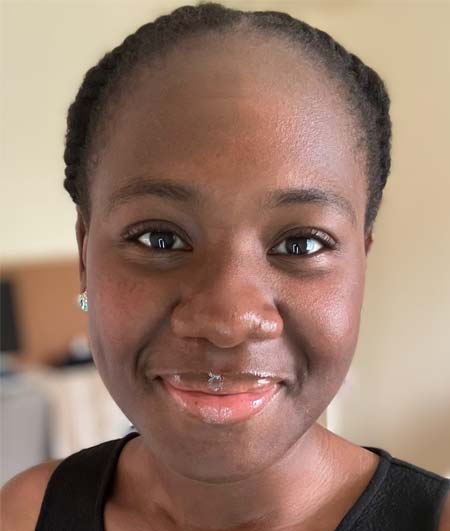
Chrystal Spencer
I earned a Bachelor of Arts in Psychology from Rutgers University and a PhD in Biological and Health Psychology from the University of Pittsburgh. My graduate work focused on how psychological stress confers risk for vascular disease and accelerated aging in otherwise healthy midlife adults, specifically through neurobiological and biobehavioral pathways. As a Postdoctoral Scholar in the Cardiovascular Epidemiology T32 program, I am continuing to develop this program of research by integrating perspectives and methods from social epidemiology, while also training to become an independent research scientist. My current work explores how structural and systemic sources of stress (e.g., neighborhood-level disadvantage) interact with person-level risk and resilience factors to influence trajectories of cognitive aging. I am particularly interested in how cardiovascular aging processes (e.g., hypertension, arterial stiffening) might mediate these associations.
Past Trainees
For individual trainee perspective on our program, please follow trainee links.
Andrew Althouse ›
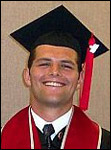 I began my graduate studies at Pitt by obtaining a Master’s degree in the field of Applied Statistics. Along the way, I had a summer-long internship in Pitt’s Epidemiology Data Center, which introduced me to clinical research. This experience convinced me that Pitt’s Department of Epidemiology was the place to merge my statistical training with a newfound interest in medical research.
I began my graduate studies at Pitt by obtaining a Master’s degree in the field of Applied Statistics. Along the way, I had a summer-long internship in Pitt’s Epidemiology Data Center, which introduced me to clinical research. This experience convinced me that Pitt’s Department of Epidemiology was the place to merge my statistical training with a newfound interest in medical research.
Julius Asubonteng ›
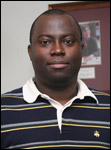 My background is in computer science and mathematics, and I became interested in medical research when I interned for Pfizer Inc. in my junior year in college. I worked on number of projects that span over different therapeutic areas, as well as phases of clinical trials. After graduation, I went to work for a number of outfits that largely deal with clinical research.
My background is in computer science and mathematics, and I became interested in medical research when I interned for Pfizer Inc. in my junior year in college. I worked on number of projects that span over different therapeutic areas, as well as phases of clinical trials. After graduation, I went to work for a number of outfits that largely deal with clinical research.
Mehret Birru ›
 I grew up in Pittsburgh and after college graduation I did health literacy research at Pitt. During this time, I decided to go to medical school. I ultimately chose Pitt because it was the only MD-PhD program I applied to that offered an Epidemiology option. Pitt is a great place to train because it is such a strong research institution and there are so many people doing fascinating work here.
I grew up in Pittsburgh and after college graduation I did health literacy research at Pitt. During this time, I decided to go to medical school. I ultimately chose Pitt because it was the only MD-PhD program I applied to that offered an Epidemiology option. Pitt is a great place to train because it is such a strong research institution and there are so many people doing fascinating work here.
Yamnia Cortes ›
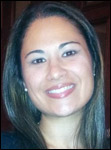 I entered the Cardiovascular Epidemiology Training Program after completing my PhD in Nursing at Columbia University, where I also received a BS/MS in Nursing and MPH in the Department of Sociomedical Sciences. Prior to Columbia University, I received a BA in Biology and a concentration in Latino Studies from William College.
I entered the Cardiovascular Epidemiology Training Program after completing my PhD in Nursing at Columbia University, where I also received a BS/MS in Nursing and MPH in the Department of Sociomedical Sciences. Prior to Columbia University, I received a BA in Biology and a concentration in Latino Studies from William College.
Susan Devaraj
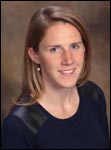 I received my Bachelors and Masters in Dietetics and Nutrition from the University of Pittsburgh School of Health and Rehabilitation Sciences. After several years working as a Registered Dietitian in hospitals and outpatient dialysis clinics, I returned to Pitt to pursue my doctoral studies and to gain experience working with lifestyle approaches to diabetes and cardiovascular disease prevention. Pitt offered the valuable opportunity to learn from experts in behavioral lifestyle intervention, diabetes and cardiovascular disease epidemiology.
I received my Bachelors and Masters in Dietetics and Nutrition from the University of Pittsburgh School of Health and Rehabilitation Sciences. After several years working as a Registered Dietitian in hospitals and outpatient dialysis clinics, I returned to Pitt to pursue my doctoral studies and to gain experience working with lifestyle approaches to diabetes and cardiovascular disease prevention. Pitt offered the valuable opportunity to learn from experts in behavioral lifestyle intervention, diabetes and cardiovascular disease epidemiology.
Michael Genuardi
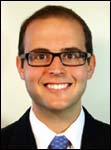 I received my BA in Physics from Boston University and my MD from Tufts. After internal medicine training at Massachusetts General Hospital, I joined UPMC as a cardiology fellow. During my fellowship, I choose to join the CVD training grant because I wanted learn rigorous epidemiologic principles to apply to my research in cardiovascular disease. I study the associations between sleep, arrhythmia, and heart failure.
I received my BA in Physics from Boston University and my MD from Tufts. After internal medicine training at Massachusetts General Hospital, I joined UPMC as a cardiology fellow. During my fellowship, I choose to join the CVD training grant because I wanted learn rigorous epidemiologic principles to apply to my research in cardiovascular disease. I study the associations between sleep, arrhythmia, and heart failure.
Emily Guhl
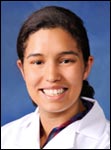 I received my BA in Biology from Washington University in St. Louis and my MD from University of Chicago – Pritzker School of Medicine. After internal medicine training at University of Pittsburgh Medical Center I stayed as a cardiology fellow. During my fellowship, I joined the CVD training grant in my third year of fellowship because I wanted learn epidemiologic principles to apply to my research in cardiovascular disease. I am interested in the impact of various social determinants of health on cardiovascular disease.
I received my BA in Biology from Washington University in St. Louis and my MD from University of Chicago – Pritzker School of Medicine. After internal medicine training at University of Pittsburgh Medical Center I stayed as a cardiology fellow. During my fellowship, I joined the CVD training grant in my third year of fellowship because I wanted learn epidemiologic principles to apply to my research in cardiovascular disease. I am interested in the impact of various social determinants of health on cardiovascular disease.
Fouzia Farooq
 I received my Masters in Public Health from George Mason University and worked as a bench scientist for several years at Walter Reed Army Institute of Research (WRAIR)/Naval Medical Research Center (NMRC) near Washington, DC, developing vaccines for malaria and ebola. After a summer internship in Swaziland (now Eswatini), I decided to pursue a PhD in Epidemiology. I chose Pitt because it has one of the most advanced programs in Women’s Health, specifically Reproductive Perinatal and Pediatric Epidemiology (RPPE). I became interested in the T32 training program in CVD epidemiology because I am interested in pursuing a career as a multi-disciplinary epidemiologist with expertise in both RPPE and CVD epidemiology.
I received my Masters in Public Health from George Mason University and worked as a bench scientist for several years at Walter Reed Army Institute of Research (WRAIR)/Naval Medical Research Center (NMRC) near Washington, DC, developing vaccines for malaria and ebola. After a summer internship in Swaziland (now Eswatini), I decided to pursue a PhD in Epidemiology. I chose Pitt because it has one of the most advanced programs in Women’s Health, specifically Reproductive Perinatal and Pediatric Epidemiology (RPPE). I became interested in the T32 training program in CVD epidemiology because I am interested in pursuing a career as a multi-disciplinary epidemiologist with expertise in both RPPE and CVD epidemiology.
William I. Fisher, PhD ›
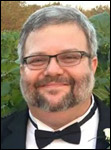 I joined the training program in Cardiovascular Epidemiology after receiving a Ph.D. in Experimental Psychology from Baylor University with an emphasis in Health Psychology. Previously, I had completed a Master’s degree in Health Psychology from Texas State University, with an emphasis in clinical psychology. Prior to psychology, I completed a degree in the culinary arts, worked as a chef, and served in Operation Desert Shield/Storm aboard a Nimitz-class aircraft carrier in the United States Navy.
I joined the training program in Cardiovascular Epidemiology after receiving a Ph.D. in Experimental Psychology from Baylor University with an emphasis in Health Psychology. Previously, I had completed a Master’s degree in Health Psychology from Texas State University, with an emphasis in clinical psychology. Prior to psychology, I completed a degree in the culinary arts, worked as a chef, and served in Operation Desert Shield/Storm aboard a Nimitz-class aircraft carrier in the United States Navy.
Adrianna Acevedo-Fontanez
 I received a Bachelor of Science in Natural Sciences and a Master of Science in Epidemiology from the University of Puerto Rico. I worked as a study coordinator and community health educator in several research groups and then I completed a pre-Doctoral Diversity Supplement from the NIH. The Diversity Supplement supported my efforts to peruse a Doctoral degree in Epidemiology which I started in August of 2019 at the University of Pittsburgh. My main research goals are focus on understanding the association between modifiable lifestyle risk factors with obesity and CVD and how we can use this new knowledge to implement sustainable and culturally appropriate prevention strategies to reduce the burden of these illnesses among minority populations.
I received a Bachelor of Science in Natural Sciences and a Master of Science in Epidemiology from the University of Puerto Rico. I worked as a study coordinator and community health educator in several research groups and then I completed a pre-Doctoral Diversity Supplement from the NIH. The Diversity Supplement supported my efforts to peruse a Doctoral degree in Epidemiology which I started in August of 2019 at the University of Pittsburgh. My main research goals are focus on understanding the association between modifiable lifestyle risk factors with obesity and CVD and how we can use this new knowledge to implement sustainable and culturally appropriate prevention strategies to reduce the burden of these illnesses among minority populations.
Carrie Hanley ›
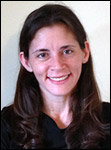 I graduated from the United States Air Force Academy with a Bachelor of Science in Psychology and served five years on active duty as an Air Force officer. During this time, I garnered invaluable experience as a supervisor and leader. After my military service, I joined the U.S. Peace Corps and served as a health volunteer in The Gambia, West Africa. I lived in a remote village and worked with the maternal and youth trekking team to provide healthcare to villages cut off from services. My experience as a volunteer instilled in me a passion for public health. After returning from the Peace Corps, I supervised multiple medical practices that were part of a network of community health centers providing healthcare to underserved communities. I wanted to further my education in public health and found that the epidemiology program at the University of Pittsburgh was a perfect fit. I received my MPH in epidemiology and decided to continue on for my doctorate to further develop my skills as an epidemiologist.
I graduated from the United States Air Force Academy with a Bachelor of Science in Psychology and served five years on active duty as an Air Force officer. During this time, I garnered invaluable experience as a supervisor and leader. After my military service, I joined the U.S. Peace Corps and served as a health volunteer in The Gambia, West Africa. I lived in a remote village and worked with the maternal and youth trekking team to provide healthcare to villages cut off from services. My experience as a volunteer instilled in me a passion for public health. After returning from the Peace Corps, I supervised multiple medical practices that were part of a network of community health centers providing healthcare to underserved communities. I wanted to further my education in public health and found that the epidemiology program at the University of Pittsburgh was a perfect fit. I received my MPH in epidemiology and decided to continue on for my doctorate to further develop my skills as an epidemiologist.
Marquis Hawkins ›
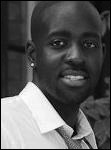 Before coming to graduate school at the University of Pittsburgh, I was an Exercise Science student at Indiana University of Pennsylvania. As a recreational athlete, the focus of my early training was on strength and conditioning. Although working with athletes was fun, it didn’t provide for me a meaningful experience. As a senior, I decided that my focus should be on helping people maintain and improve the quality of their lives through disease prevention and management instead of helping people develop a nice six pack for the beach.
Before coming to graduate school at the University of Pittsburgh, I was an Exercise Science student at Indiana University of Pennsylvania. As a recreational athlete, the focus of my early training was on strength and conditioning. Although working with athletes was fun, it didn’t provide for me a meaningful experience. As a senior, I decided that my focus should be on helping people maintain and improve the quality of their lives through disease prevention and management instead of helping people develop a nice six pack for the beach.
Brandon Herbert
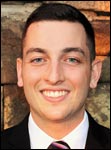 I received both my Bachelor of Science in Chemistry and Master of Public Health from the University of Pittsburgh. My research career started as a bench scientist investigating potential roles of T lymphocyte cell subsets in severe and steroid-insensitive asthma. However, my desire to investigate the role of social determinants of health grew through my experience as a fellow at a help desk located at the Birmingham Free Clinic in Pittsburgh’s Southside neighborhood. I quickly learned the detrimental effects on health that a lack of access to resources, healthcare and support can have. The T32 program in CVD epidemiology has offered me an opportunity to continue conducting research focused on the impact of several social determinants of health on cardiovascular care, quality, and health by leveraging large health system-based datasets.
I received both my Bachelor of Science in Chemistry and Master of Public Health from the University of Pittsburgh. My research career started as a bench scientist investigating potential roles of T lymphocyte cell subsets in severe and steroid-insensitive asthma. However, my desire to investigate the role of social determinants of health grew through my experience as a fellow at a help desk located at the Birmingham Free Clinic in Pittsburgh’s Southside neighborhood. I quickly learned the detrimental effects on health that a lack of access to resources, healthcare and support can have. The T32 program in CVD epidemiology has offered me an opportunity to continue conducting research focused on the impact of several social determinants of health on cardiovascular care, quality, and health by leveraging large health system-based datasets.
Hsin-Hui Huang
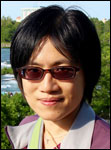 I graduated from Kaohsiung Medical College and finished my resident training in internal medicine. I focused on treating cancer patients in the medical oncology department after getting my MPH degree of health management at Yale. I’ve gotten experience in the clinical practice, but did not know how to turn it into sound evidence for future clinical application. Therefore, I joined the MS program of Biostatistics at Pitt to understand the mathematical methods to answer my question quantitatively. In order to have good quality of evidence, appropriate study designs are required to collect correct data and to obtain less biased results. I decided to pursue my PhD degree of Epidemiology because I want to know the methods to design good quality studies.
I graduated from Kaohsiung Medical College and finished my resident training in internal medicine. I focused on treating cancer patients in the medical oncology department after getting my MPH degree of health management at Yale. I’ve gotten experience in the clinical practice, but did not know how to turn it into sound evidence for future clinical application. Therefore, I joined the MS program of Biostatistics at Pitt to understand the mathematical methods to answer my question quantitatively. In order to have good quality of evidence, appropriate study designs are required to collect correct data and to obtain less biased results. I decided to pursue my PhD degree of Epidemiology because I want to know the methods to design good quality studies.
Tim Hughes ›
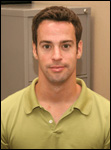 I received my master’s in public health and had worked for the CDC and NIH. I started out in toxicology and chemistry before finding the “human” aspect of epidemiology so appealing. I chose Pitt because of the reputation it had with the NIH researchers I worked with at the National Institute on Aging.
I received my master’s in public health and had worked for the CDC and NIH. I started out in toxicology and chemistry before finding the “human” aspect of epidemiology so appealing. I chose Pitt because of the reputation it had with the NIH researchers I worked with at the National Institute on Aging.
Franya Hutchins
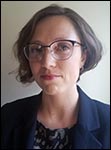 My first exposure to public health was studying food safety and environmental pathogens while pursuing an MS degree in Agricultural and Life Sciences at Virginia Tech. Following this experience, I was drawn to epidemiology for its combination of analytic rigor and translational impact. When I came to Pitt for the PhD program, I joined the Epidemiology Data Center where I have had the opportunity to broaden my research interests through working with the Study of Women’s Health Across the Nation. As a trainee in Cardiovascular Epidemiology, my current work focuses on protective factors for cardiovascular health among women in midlife and late life.
My first exposure to public health was studying food safety and environmental pathogens while pursuing an MS degree in Agricultural and Life Sciences at Virginia Tech. Following this experience, I was drawn to epidemiology for its combination of analytic rigor and translational impact. When I came to Pitt for the PhD program, I joined the Epidemiology Data Center where I have had the opportunity to broaden my research interests through working with the Study of Women’s Health Across the Nation. As a trainee in Cardiovascular Epidemiology, my current work focuses on protective factors for cardiovascular health among women in midlife and late life.
Dana Jorgensen
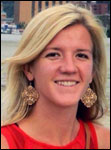 My background is in physiology and public health, and I graduated Magna Cum Laude in Integrative Physiology from the University of Colorado in 2010, after which, I decided to pursue an MPH in Epidemiology from the University of Colorado, AMC. During this time I worked with the Colorado Department of Health on the Autism and Developmental Disabilities Monitoring program. After receiving my MPH in Epidemiology from the University of Colorado, I moved to Pittsburgh to begin studies to obtain my PhD at Pitt. I made this decision to attend Pitt so that I could learn about the cardiovascular risk factors for cognitive impairment from experts in the field.
My background is in physiology and public health, and I graduated Magna Cum Laude in Integrative Physiology from the University of Colorado in 2010, after which, I decided to pursue an MPH in Epidemiology from the University of Colorado, AMC. During this time I worked with the Colorado Department of Health on the Autism and Developmental Disabilities Monitoring program. After receiving my MPH in Epidemiology from the University of Colorado, I moved to Pittsburgh to begin studies to obtain my PhD at Pitt. I made this decision to attend Pitt so that I could learn about the cardiovascular risk factors for cognitive impairment from experts in the field.
Rain Katz
 I received my BS in Biology and BA in Philosophy from the University of Pittsburgh in 2019, and my MPH in Epidemiology from the Pitt School of Public Health in 2020. I decided to continue my doctoral training at Pitt to expand my skills in the areas of research and study design. My interests include the molecular determinants of cardiovascular disease, health inequities, and high-risk/international populations. My dissertation work involves studying cardiovascular disease within the Tobago Health Studies.
I received my BS in Biology and BA in Philosophy from the University of Pittsburgh in 2019, and my MPH in Epidemiology from the Pitt School of Public Health in 2020. I decided to continue my doctoral training at Pitt to expand my skills in the areas of research and study design. My interests include the molecular determinants of cardiovascular disease, health inequities, and high-risk/international populations. My dissertation work involves studying cardiovascular disease within the Tobago Health Studies.
Andrea Kozai
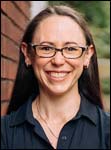 I completed my undergraduate studies at Skidmore College in Saratoga Springs, NY with a double major in Exercise Science and Dance in 2004, and spent the next 14 years dancing professionally and working in physical therapy, personal training, and sports conditioning environments. I earned my Master of Science degree in Dance Science from the University of Wolverhampton in the United Kingdom in 2014, and conducted research on resistance training, workload quantification, and health literacy in dancers. In 2019 I retired from performing and enrolled in the PhD program in Exercise Physiology at the University of Pittsburgh. During my doctoral studies I had the opportunity to work on several physical activity and sedentary behavior research projects, including the Molecular Transducers of Physical Activity Consortium (MoTrPAC), Pregnancy 24/7, and the SPRING Study. My dissertation examined the associations between physical activity, sedentary behavior, and other aspects of maternal cardiovascular health across pregnancy on vascularization in the placenta measured using histology. As a T32-supported postdoctoral scholar in the Cardiovascular Epidemiology training program, I am continuing to research the long-term impacts of modifiable cardiovascular health factors in pregnancy on maternal disease risk and progression.
I completed my undergraduate studies at Skidmore College in Saratoga Springs, NY with a double major in Exercise Science and Dance in 2004, and spent the next 14 years dancing professionally and working in physical therapy, personal training, and sports conditioning environments. I earned my Master of Science degree in Dance Science from the University of Wolverhampton in the United Kingdom in 2014, and conducted research on resistance training, workload quantification, and health literacy in dancers. In 2019 I retired from performing and enrolled in the PhD program in Exercise Physiology at the University of Pittsburgh. During my doctoral studies I had the opportunity to work on several physical activity and sedentary behavior research projects, including the Molecular Transducers of Physical Activity Consortium (MoTrPAC), Pregnancy 24/7, and the SPRING Study. My dissertation examined the associations between physical activity, sedentary behavior, and other aspects of maternal cardiovascular health across pregnancy on vascularization in the placenta measured using histology. As a T32-supported postdoctoral scholar in the Cardiovascular Epidemiology training program, I am continuing to research the long-term impacts of modifiable cardiovascular health factors in pregnancy on maternal disease risk and progression.
Allison Kuipers ›
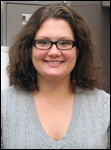 I have a Bachelor of Science in Biology with minors in Theater Performance and Chemistry. As an undergraduate, I was a lab assistant in the molecular epidemiology lab of Dr. Joseph Zmuda. I had initially planned to go to medical school, but after working in the field of epidemiology on the molecular side of research, I decided to pursue a graduate degree in Epidemiology.
I have a Bachelor of Science in Biology with minors in Theater Performance and Chemistry. As an undergraduate, I was a lab assistant in the molecular epidemiology lab of Dr. Joseph Zmuda. I had initially planned to go to medical school, but after working in the field of epidemiology on the molecular side of research, I decided to pursue a graduate degree in Epidemiology.
Megan Marron
 I received a Bachelor of Science in Applied Statistics from Rochester Institute of Technology and a Master of Science in Biostatistics from the University of Pittsburgh. After completing my MS degree, I worked as a data analyst on several NIH-funded large epidemiologic cohort studies at the University of Pittsburgh. This work led me to continue my studies and in 2019, I received a Doctor of Philosophy in Epidemiology from the University of Pittsburgh. Currently, I am a Postdoctoral Scholar, working toward becoming an independent scientist. My current research involves using metabolomics to identify biological determinants of healthy aging, free of physical disability, cardiovascular disease and other common chronic conditions.
I received a Bachelor of Science in Applied Statistics from Rochester Institute of Technology and a Master of Science in Biostatistics from the University of Pittsburgh. After completing my MS degree, I worked as a data analyst on several NIH-funded large epidemiologic cohort studies at the University of Pittsburgh. This work led me to continue my studies and in 2019, I received a Doctor of Philosophy in Epidemiology from the University of Pittsburgh. Currently, I am a Postdoctoral Scholar, working toward becoming an independent scientist. My current research involves using metabolomics to identify biological determinants of healthy aging, free of physical disability, cardiovascular disease and other common chronic conditions.
Candace McClure ›
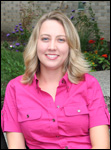 I wanted a career in medicine, however I did not desire to be either a physician or a bench scientist. When I was introduced to epidemiology, I knew that I had found my niche. It has given me the opportunity to apply the knowledge and skills gained in my favorite courses (developmental biology, cellular and molecular biology, research methods and statistics) to a single project.
I wanted a career in medicine, however I did not desire to be either a physician or a bench scientist. When I was introduced to epidemiology, I knew that I had found my niche. It has given me the opportunity to apply the knowledge and skills gained in my favorite courses (developmental biology, cellular and molecular biology, research methods and statistics) to a single project.
Michelle Meyer ›
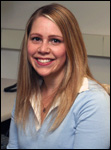 I attended the University of Minnesota and received a degree in microbiology before coming to Pittsburgh. I chose Pitt because of their academic program and reputation. I liked the diversity that the graduate school offered and I also wanted to experience a new environment.
I attended the University of Minnesota and received a degree in microbiology before coming to Pittsburgh. I chose Pitt because of their academic program and reputation. I liked the diversity that the graduate school offered and I also wanted to experience a new environment.
Nancy Niemczyk ›
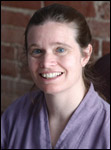 After a BA in religion, biology and women’s studies from Swarthmore College and a BSN and MSN from the University of Pennsylvania, I spent 15 years practicing as a certified nurse-midwife. While helping individual families have healthy pregnancies and births is very satisfying, I wanted to do work which would improve the lives of more than just my individual clients.
After a BA in religion, biology and women’s studies from Swarthmore College and a BSN and MSN from the University of Pennsylvania, I spent 15 years practicing as a certified nurse-midwife. While helping individual families have healthy pregnancies and births is very satisfying, I wanted to do work which would improve the lives of more than just my individual clients.
Jennifer Njoroge ›
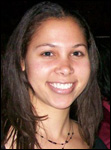 My background is in chemical engineering and as a student I worked on projects in computational modeling and laboratory research. I eventually came to realize that I wanted to pursue a PhD in an area of health research that directly involves working with and helping the public. I chose Pitt because of its reputation for strong medical research.
My background is in chemical engineering and as a student I worked on projects in computational modeling and laboratory research. I eventually came to realize that I wanted to pursue a PhD in an area of health research that directly involves working with and helping the public. I chose Pitt because of its reputation for strong medical research.
Mitali Ray, PhD, RN (she/her)
 I earned a BS in Biology from Towson University, a PhD in Biomedical Sciences from Lewis Katz School of Medicine at Temple University, and an accelerated BS in Nursing (BSN) from West Chester University. My graduate work focused on characterization of the anti-inflammatory, pro-angiogenic cytokine, Interleukin-19, in regulation of vascular inflammation. During my BSN I was exposed to pregnancy-related cardiovascular disease research, which has been the focus of my postdoctoral research at University of Pittsburgh, a leader in pregnancy-related research. I joined the cardiovascular disease epidemiology T32 program for a third year of postdoctoral work, after completing two years of T32 training in omics at Pitt School of Nursing. The personalized mentorship I am receiving has been customized for my background and research interests and designed to round out my multi-disciplinary postdoctoral training. My current work focuses on applying omics to understand how the embodiment of chronic stress drives racial disparities of hypertensive disorders of pregnancy, namely preeclampsia.
I earned a BS in Biology from Towson University, a PhD in Biomedical Sciences from Lewis Katz School of Medicine at Temple University, and an accelerated BS in Nursing (BSN) from West Chester University. My graduate work focused on characterization of the anti-inflammatory, pro-angiogenic cytokine, Interleukin-19, in regulation of vascular inflammation. During my BSN I was exposed to pregnancy-related cardiovascular disease research, which has been the focus of my postdoctoral research at University of Pittsburgh, a leader in pregnancy-related research. I joined the cardiovascular disease epidemiology T32 program for a third year of postdoctoral work, after completing two years of T32 training in omics at Pitt School of Nursing. The personalized mentorship I am receiving has been customized for my background and research interests and designed to round out my multi-disciplinary postdoctoral training. My current work focuses on applying omics to understand how the embodiment of chronic stress drives racial disparities of hypertensive disorders of pregnancy, namely preeclampsia.
Mary Schiff
 I received my BS in Public Health from The Ohio State University, and my MPH in Epidemiology from the University of Illinois at Chicago. As a Pittsburgh native, I happily returned to the city to pursue my PhD in Epidemiology, and ultimately chose Pitt for its strong commitment to service and reputation for quality research. My area of interest and current work integrates spatial and epidemiologic methods to describe the contextual influence of neighborhood-level social and built environment factors impacting cardiovascular wellness and health.
I received my BS in Public Health from The Ohio State University, and my MPH in Epidemiology from the University of Illinois at Chicago. As a Pittsburgh native, I happily returned to the city to pursue my PhD in Epidemiology, and ultimately chose Pitt for its strong commitment to service and reputation for quality research. My area of interest and current work integrates spatial and epidemiologic methods to describe the contextual influence of neighborhood-level social and built environment factors impacting cardiovascular wellness and health.
Kelly Shields ›
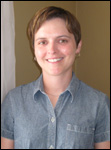 I have followed a rather unorthodox path toward my pursuit of an MS in Epidemiology and participation as a post-doctoral trainee with the Cardiovascular Training Grant. I spent 3 years in industry after completion of my bachelor’s of science in mechanical engineering from Grove City College.
I have followed a rather unorthodox path toward my pursuit of an MS in Epidemiology and participation as a post-doctoral trainee with the Cardiovascular Training Grant. I spent 3 years in industry after completion of my bachelor’s of science in mechanical engineering from Grove City College.
Andrea Leigh Stewart
 I obtained my bachelor’s degree in Mathematics and Community Health from Tufts University. After college, I worked for two years as a Post-Bachelor Fellow at the Institute for Health Metrics and Evaluation conducting global health research on vital registration and data collection systems, developing and refining computational methods for processing large amounts of complex data. I moved to Pittsburgh to pursue a PhD in Epidemiology because of its strong emphasis on Epidemiologic methods. At the University of Pittsburgh, I worked on the Study of Women’s Health Across the Nation (SWAN) as a GSR, and then as a trainee on both Aging and Cardiovascular Disease Epidemiology training grants.
I obtained my bachelor’s degree in Mathematics and Community Health from Tufts University. After college, I worked for two years as a Post-Bachelor Fellow at the Institute for Health Metrics and Evaluation conducting global health research on vital registration and data collection systems, developing and refining computational methods for processing large amounts of complex data. I moved to Pittsburgh to pursue a PhD in Epidemiology because of its strong emphasis on Epidemiologic methods. At the University of Pittsburgh, I worked on the Study of Women’s Health Across the Nation (SWAN) as a GSR, and then as a trainee on both Aging and Cardiovascular Disease Epidemiology training grants.
Natalie Suder
 After studying Biology and Spanish at The Pennsylvania State University, I received my MPH in Infectious Diseases and Microbiology from the University of Pittsburgh. While a student, I worked as a clinical virology research specialist. During that time, I decided to continue my studies in public health, and enrolled in the DrPH program in Epidemiology.
After studying Biology and Spanish at The Pennsylvania State University, I received my MPH in Infectious Diseases and Microbiology from the University of Pittsburgh. While a student, I worked as a clinical virology research specialist. During that time, I decided to continue my studies in public health, and enrolled in the DrPH program in Epidemiology.
Curtis Tilves
 I began my academic career at the University of Pittsburgh receiving my bachelors in Molecular Biology, Philosophy, and History and Philosophy of Science. During this time, I worked in the lab of Dr. Jeffrey Lawrence on the role of protozoan predation driving Salmonella O-antigen diversity. I became interested in the role that communities of microorganisms play in human health and joined the molecular epidemiology lab of Dr. Joseph Zmuda where I worked on the impact of bacterial-induced inflammation on fat distribution in the Tobago Health Studies cohort. I found a passion for public health and continued my education in Pittsburgh, receiving an MS in Epidemiology and a Certificate in Public Health Genetics. I am now working on a PhD in Epidemiology and a Certificate in Global Health with the goal of understanding the relationships between the microbiome and cardiometabolic diseases.
I began my academic career at the University of Pittsburgh receiving my bachelors in Molecular Biology, Philosophy, and History and Philosophy of Science. During this time, I worked in the lab of Dr. Jeffrey Lawrence on the role of protozoan predation driving Salmonella O-antigen diversity. I became interested in the role that communities of microorganisms play in human health and joined the molecular epidemiology lab of Dr. Joseph Zmuda where I worked on the impact of bacterial-induced inflammation on fat distribution in the Tobago Health Studies cohort. I found a passion for public health and continued my education in Pittsburgh, receiving an MS in Epidemiology and a Certificate in Public Health Genetics. I am now working on a PhD in Epidemiology and a Certificate in Global Health with the goal of understanding the relationships between the microbiome and cardiometabolic diseases.
Jessica White ›
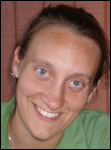 I entered the DrPH program in Epidemiology at the University of Pittsburgh after completing an undergraduate degree in Biology at Penn State University and a Masters degree in Bioscience Technologies (concentration: Medical Technology) at Thomas Jefferson University. Before enrolling in the Graduate School of Public Health, I worked as a Medical Technologist in the Clinical Microbiology and Immunology Department at Virginia Hospital Center (Arlington, VA). I am interested in building upon my clinical laboratory background to study effects of infectious and inflammatory diseases on subclinical cardiovascular disease measures.
I entered the DrPH program in Epidemiology at the University of Pittsburgh after completing an undergraduate degree in Biology at Penn State University and a Masters degree in Bioscience Technologies (concentration: Medical Technology) at Thomas Jefferson University. Before enrolling in the Graduate School of Public Health, I worked as a Medical Technologist in the Clinical Microbiology and Immunology Department at Virginia Hospital Center (Arlington, VA). I am interested in building upon my clinical laboratory background to study effects of infectious and inflammatory diseases on subclinical cardiovascular disease measures.
Genevieve Woodard ›
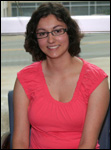 The University of Pittsburgh offers a diversity of research topics and advisors to choose from. Incoming students can explore a variety of research topics and identify an advisor that will develop into a lasting and rewarding relationship. Additionally, students can collaborate with other faculty to develop their research skills further.
The University of Pittsburgh offers a diversity of research topics and advisors to choose from. Incoming students can explore a variety of research topics and identify an advisor that will develop into a lasting and rewarding relationship. Additionally, students can collaborate with other faculty to develop their research skills further.


